AI in SEO – Boost Ranking with Artificial Intelligence Tools
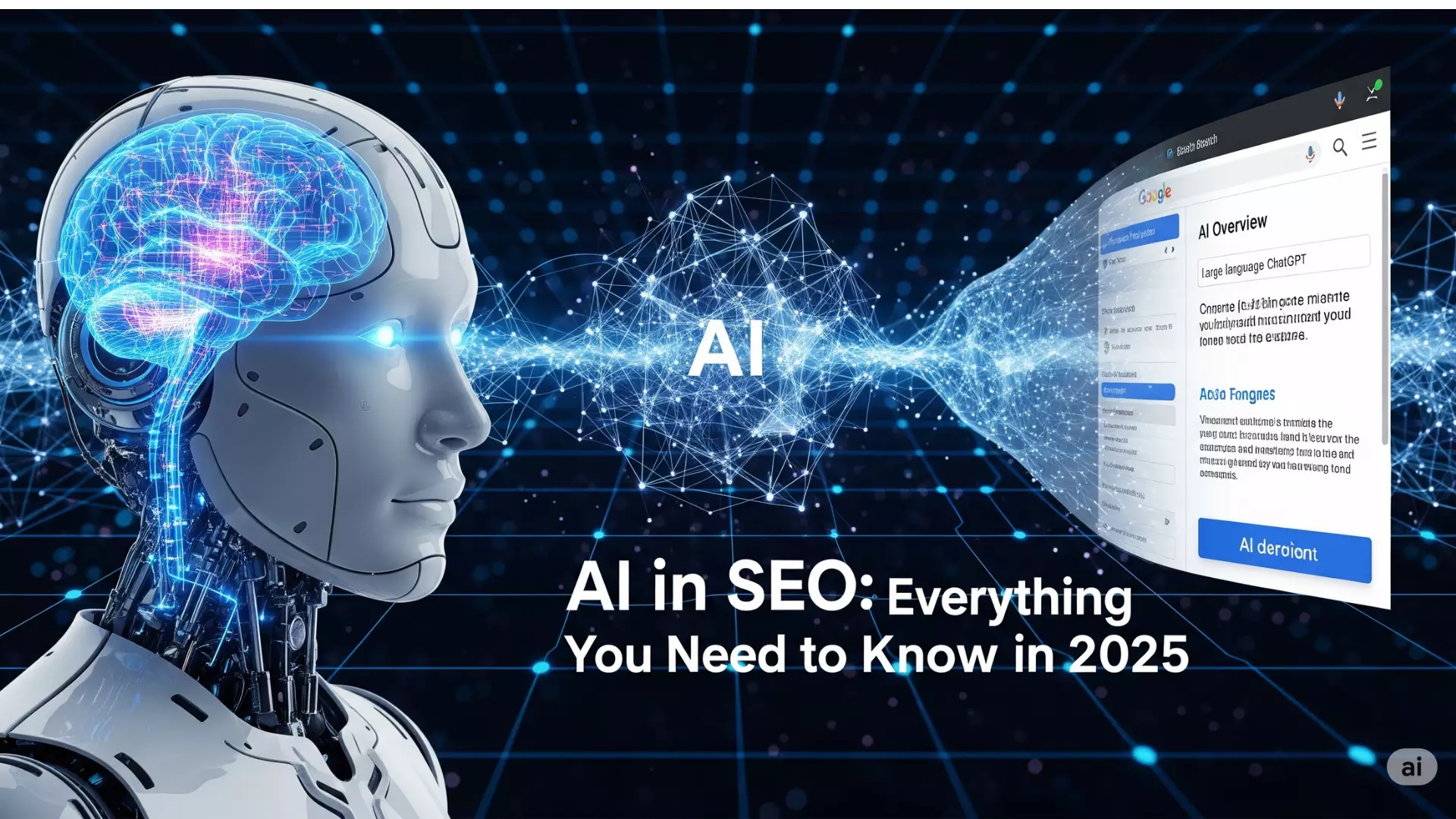
As 2025 is coming to an end, the topic of AI in SEO is becoming hotter than ever. This evolution is not just about using AI tools for faster SEO progress, but also about optimizing your content to rank in AI-generated overviews and ChatGPT results. The users who used to get their answers from your blogs are now chatting with ChatGPT (aka “Chatty” outta love) to discuss their problems.
According to SEO Clarity, 86% of enterprise SEOs have already adopted Artificial Intelligence in their workflow, and 82% are optimistic about using it in the future. This number speaks volumes about what the future is potentially gonna look like for SEO professionals, businesses, and brands.
Because let’s just be real for a minute, we can’t manipulate Google by buying backlinks from authority websites to rank our pages now. Search is changing, no matter if it’s Google, Bing, YouTube, or any other platform. But wait…let’s just throw FOMO out of the window for a few seconds. Think about the good things you can do with AI SEO, such as improve UI with AI insights, automate all the repetitive tasks, so you can focus on things that actually demand your brain.
This guide has all that you need to understand about AI in SEO so you can always stay 10 moves ahead of your competitors, and outperform your doubts, such as “Is SEO dead?” or “Will AI replace SEO?”. Keep reading to know what you’re missing out when it comes to using AI in SEO.
What is AI SEO?
The term AI SEO (Artificial Intelligence Search Engine Optimization) which People Also Search For “AI and SEO” refers to SEOs using large language models (LLMs), natural language processing (NLP), and machine learning (ML) for executing SEO strategies to rank for search engines, answer engines and generative engines. Now, that is the definition of what in the world AI in SEO means. But there’s more to it, for example, how it differs from traditional, old-fashioned SEO.
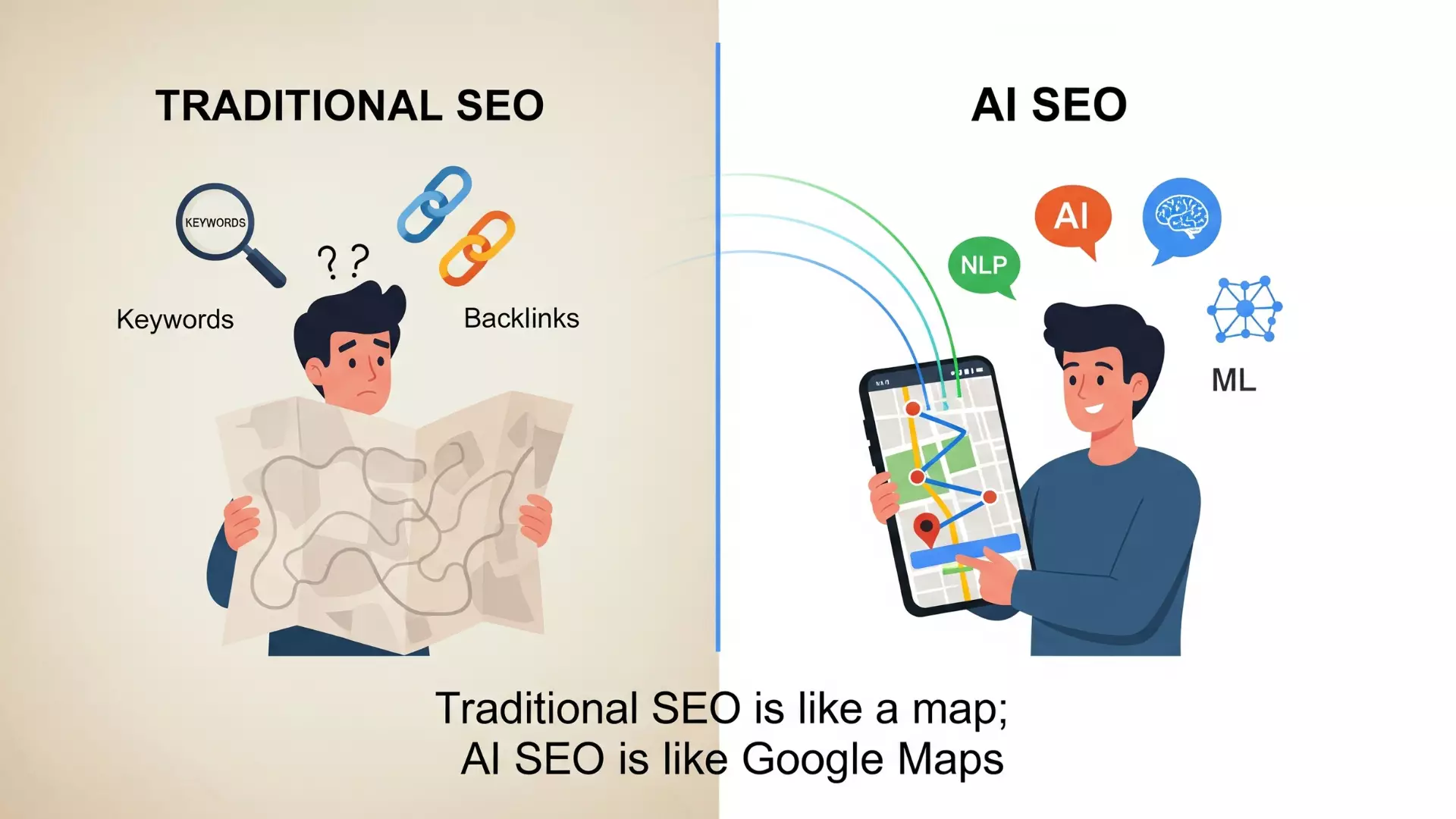
Let’s assume traditional SEO as traveling with a map in your hand, and AI SEO as Google Maps. You get it, right? That’s pretty much the difference. Traditional SEO is outdated, tricky, and stays on the surface level, while AI SEO is faster, adaptive, and lets you dive deep to understand the intent and structure the content for the users accordingly. Here are the key components of AI SEO optimization (precisely):
Now, let’s look at each of the above points in detail to discuss why exactly AI in SEO matters for today’s marketing. AI Insights DualMedia is new norm in 2025 for all digital marketers and businesses who intend to rank their websites in Search Engines with the help of using AI.
Why AI SEO Matters For Google Search and User Experience?
SEO has always been changing, and this is not the first. But yeah, the change is quite fast and noticeable this time, which makes it essential for businesses and digital marketers to adapt. AI search engine optimization acts like the bridge between how Google processes data and how users consume content. Keep reading to find out the top 5 reasons why using AI in SEO can help you stand out in Google Search and enhance the user experience of your website.
1. Content Optimization For AI Overview
It’s not just the structure and backlinks, now. Your content has to be optimized in a way that Google shows it in the AI featured snippet. To achieve that, you need to summarize the key concepts of your blog/keyword in short sentences, add bullets, FAQs, and subheadings to create ease in skimming, and back your content with credible sources (high-authority websites).
These are the proven strategies you can implement to rank in AI overviews and even ChatGPT. If you’re able to rank on Google’s page #1, you can easily get featured in the AI snippet.
2. Automations & Workflows
As quoted before, 56% of SEO professionals are using AI SEO tools in their workflow to automate repetitive tasks, unlike spending hours in manual research in traditional SEO. We’re living in the era of AI. The AI SEO tools are not just pulling off simple tasks but doing the heavy lifting, such as auditing heavy websites in minutes, tracking SERP shifts in real time, clustering keywords by intent instead of raw volumes, and auto-generating schema markup & metadata.
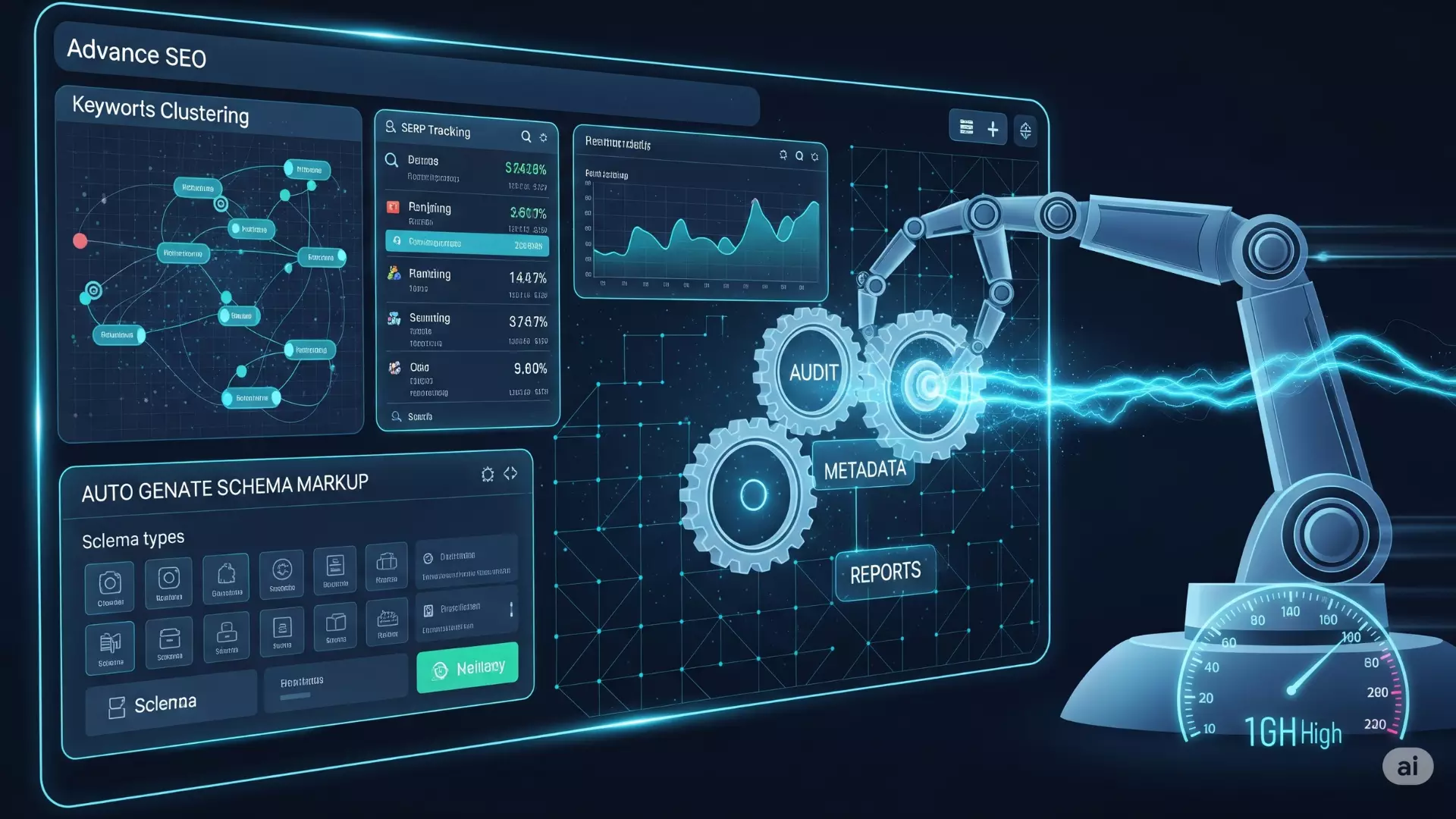
3. User-Intent Prediction
One couldn’t think about automating user-intent prediction because this task had to be done by humans. Now, AI has become smart and intelligent enough to give content briefs and create topic clusters aligned with the user intent. For example, if an online retailer wants to rank for the keyword “Nike Air Zoom Pegasus” and create multiple pages on this pillar page to dominate the SERP.
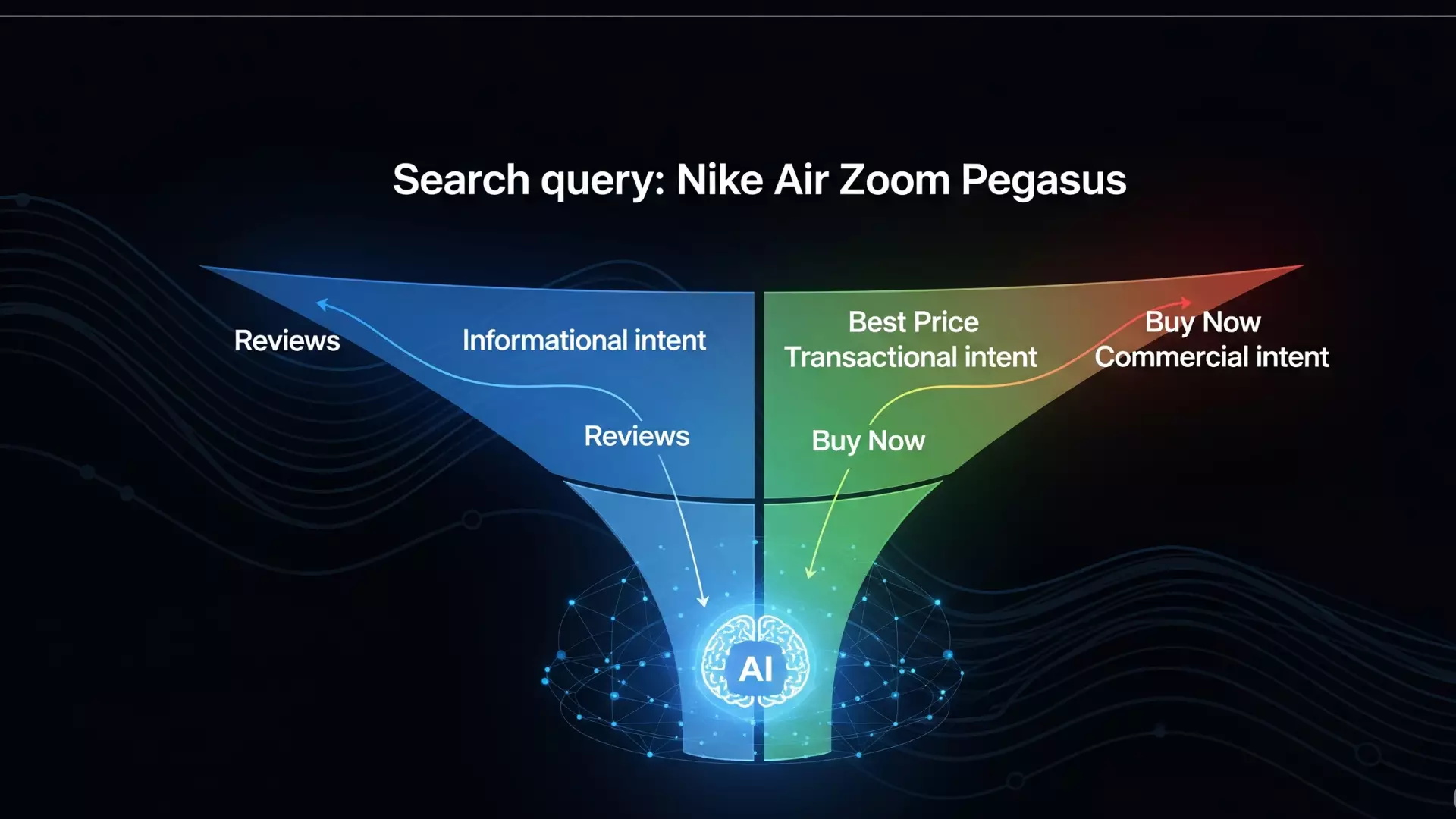
Let’s say if the user is searching for “Nike Air Zoom Pegasus reviews,” that indicates the user is still doing research, and the keyword falls in the informational category. If the keyword is “Nike Air Zoom Pegasus best price,” that means the user is somewhat ready to make a purchase, which makes it a transactional keyword, so on and so forth. Now, AI can interpret the user intent and do search intent analysis & topic clustering for you (which used to take hours of your time).
4. Performance Insights
Through AI SEO tools, marketers can predict ranking shifts within two weeks of algorithm updates. Ain’t that cool? With the help of integrating artificial intelligence in your work process, you can understand not just what changed, but why from a Google Search perspective. Similarly, if we try to look at the situation from the user experience perspective, there are AI-based heatmaps that can tell you where the user abandoned the page and give you the reasons, such as un-interactive website design, slow Core Web Vitals, etc.
5. Personalization at Scale
59% of consumers are happy with the shopping experience when a website features personalized recommendations for them. So, adding personalizations for customers or consumers (depending on your business model/product type) isn’t an option, but a dire need to sustain your business. With the help of AI SEO tools, you can generate automated meta descriptions tailored to different audience segments, adjust product/category recommendations based on the location, past searches, or browsing history.
Taking personalization super seriously for your brand’s website helps you reduce bounce rate and increase the CTR by 14% and the conversion by 10%. Keep in mind that if the users are continuously bouncing back to SERP, aka pogo-sticking, you have entered a danger zone in Google’s eyes.
The Evolution of SEO and AI
While the complete evolution of search engine optimization and artificial intelligence can be studied separately as both of these are giant industries today, since we’re understanding the ins and outs of AI in SEO, we’ll cover them hand in hand. Read the interesting and data-driven story of AI and SEO from hardly discussed topics to becoming one of the hot topics on the internet today.
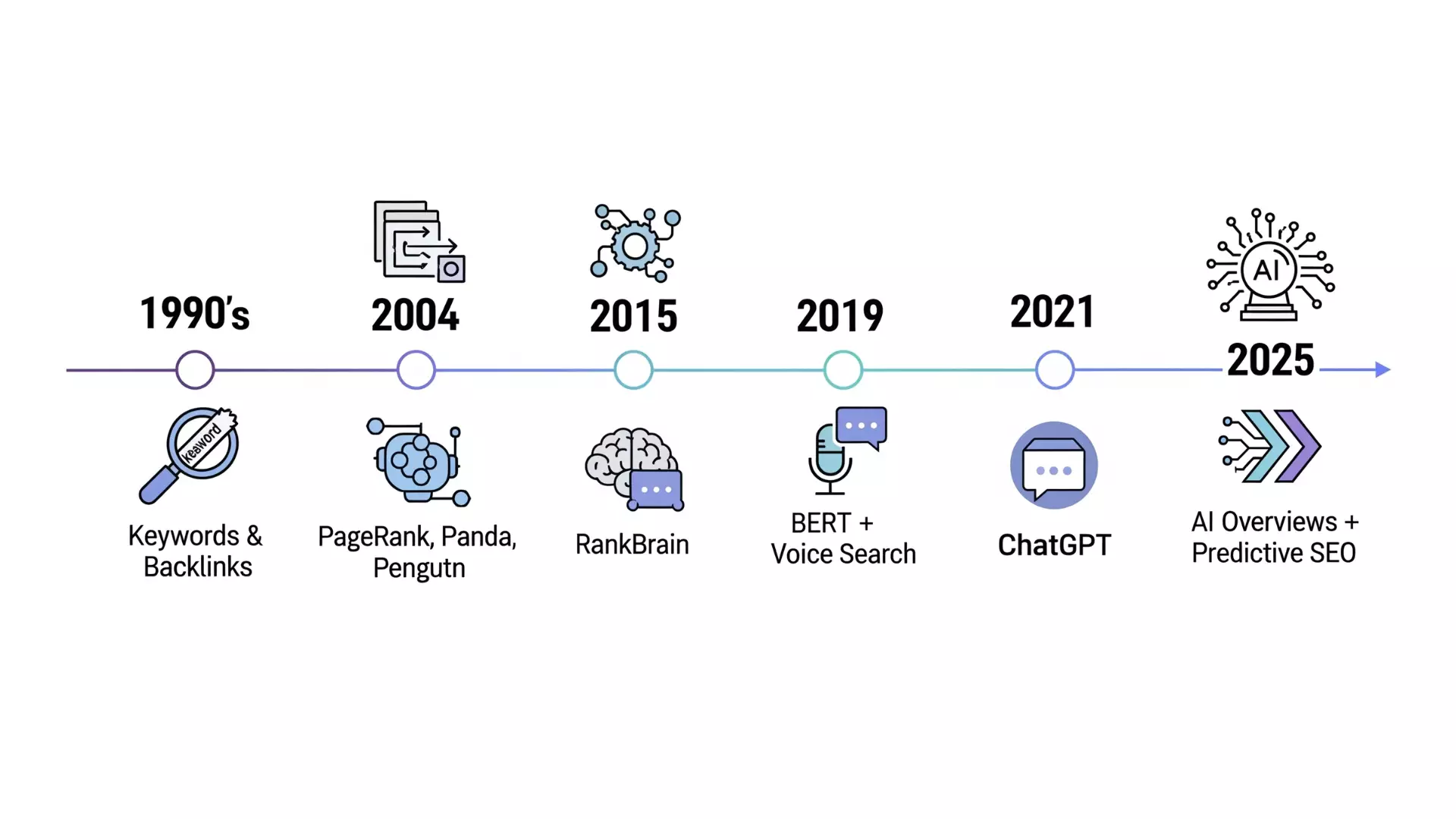
The Early SEO Era (1990s – early 2000s): Keywords, Backlinks, and Basic Algorithms
Back in the mid-1990s 1990s search engines such as AltaVista, Yahoo! Directory, Lycos, and Google started to push users to become contributors on the platform. Just optimizing the metadata and focusing on exact-match keywords, the search engine would push the page to the top of the results. Yeah, it was that simple! But that’s where the problem grew. People started manipulating the search by stuffing keywords and pushing the exact-match keyword density to freakin’ 10%-12% which made low-quality content rank on the SERP easily.
Google’s Rise & Algorithm Updates (2004–2010): PageRank, Panda, Penguin
Google started to dominate the search engines such as Yahoo! and MSN by handling more than 200 million users on Google every single day in April 2004. The number kept growing massively and hit over 3 billion searches per day by 2010. The credit for the initial success of the platform was given to PageRank. An algorithm introduced by Larry Page, which he studied during his research project at the university.
In 2011, another algorithmic update by the name of “Panda” was launched. It targeted thin and low-quality content and removed it from the content farms. Penguin, which was introduced in 2012, penalized websites with spammy backlinks and over-optimized anchor texts. These updates pushed the blogger community to create high-quality, user-centric, and natural backlinks (improved the overall experience of the users).
The AI Introduction (2015): RankBrain and Machine Learning in SEO
On 26th October 2015, Google announced it would be using the first-ever machine learning-based algorithm to assess websites and rank them on the search. Google didn’t specifically unfold to the masses how RankBrain works. But according to the research we conducted, RankBrain seems to be involved in every single search that happens on Google. So, RankBrain sees queries not as “keywords” but as “problems” of the user that they want the solution for. And then, rank the results that match the “intent” instead of the ones that are ranking because of a higher number of backlinks.
AI in Content & Search Experience (2016–2020): BERT, NLP, and Voice Search
In 2016, Google claimed to have 20% searches performed through the voice search feature (it was booming at that time). Now, the marketers had to optimize the content in a conversational tone so that their web pages show up in the voice search. Fast forward to 2019, Google introduced a natural language processing (NLP) model by the name of BERT. It refers to a model that clearly and deeply understands the context and nuance in queries. Now, because of this model, entities and sentiment-rich content started to perform better, ranking higher in the SERP as compared to the content that only covered keywords.
AI-Powered SEO Today (2021–Present): Generative AI and ChatGPT in Search
Honestly speaking, the AI industry was already there before ChatGPT, but the launch of this tool has brought the concept of using AI in every single task of our lives to the masses. The same happened with SEO. ChatGPT is the leading force behind Google’s initiative for integrating AI overviews in the SERP. Because internet users were turning to ChatGPT, Gemini, and other AI bots for their quick and to-the-point answers to the questions or queries. Because of this evolution in Google’s SERP, the top 1% marketer has changed their SEO strategy by 180°. They’re going full on E.E.A.T. (Expertise, Experience, Authority, Trustworthiness) through fact-rich content.
In this era of AI-driven SEO, there are a lot more opportunities for businesses, brands, digital marketers, and SEOs (if we see the glass half full 🙃).
The Future of SEO with AI: Predictive SEO, Automation, and Multimodal Search
If you haven’t heard the term before, predictive search engine optimization (SEO) means that you’ll create content and optimize content on what your target audience will be searching for in the upcoming days, weeks, or months. And start ranking on it before your competitor even marks that topic to be covered in their SEO strategy later on. Yeah, it would take time, and it’s 1000% worth it. In predictive SEO, AI will have the ability to predict the trending topics and help you create optimized and E.E.A.T.-focused content. Similarly, most of the SEOs and businesses will be automating the content creation, internal linking, meta updates, and performance tracking of their websites.
Even Google itself emphasizes the importance of multimodal content, such as text, image, and videos on your web page, so your chances of getting ranked on top of the results and featured in the AI snippet have increased drastically.
How Marketers Are Using AI in 2025?
The global artificial intelligence market value was $233.46 billion in 2024 and is estimated to grow up to $1.77trillion by 2032. Marketers who want to stay ahead of the curve are investing their resources, money, and time in learning and promoting AI tools. Basically, these tools are helping them optimize their content not just for the users and Google, but for AI technologies as well. Keep reading to find out how.
AI in Keyword Research & Topic Clusters
Content Generation with AI SEO Tools
Improve Internal Linking
Competitor Analysis Done Faster
AI for Link Building (aka Backlinks)
Benefits of Integrating AI in SEO
By now, you must have understood how strongly rooted artificial intelligence has become when it comes to online marketing, specifically search engine optimization. Here are the specific 5 benefits that actually show how vital AI in SEO has become.
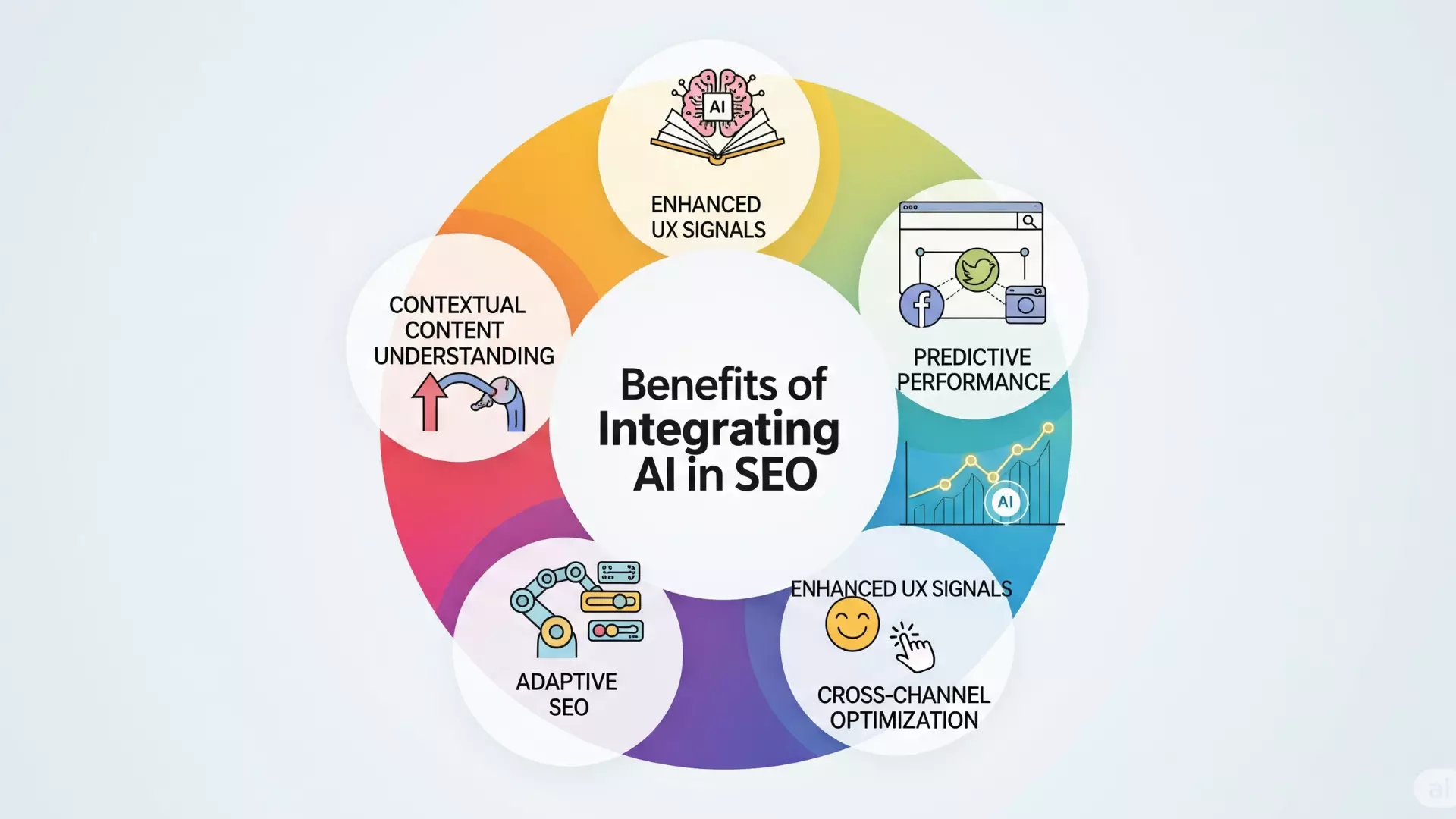
1. Contextual Content Understanding: Yes, there were tools such as Ahrefs, SEMRush, which helped in keyword research and analyzing content gaps. But here’s the thing: AI is far more powerful than we think it is. It can understand the semantic meaning, user intent, and content relationships of the keywords.
2. Predictive Content Performance: AI can help you interpret which piece of content is gonna perform well on the SERP. It can predict beyond analytics, which makes it a no-brainer for SEO.
3. Adaptive SEO Strategies: Before you experience the traffic drop, you can adjust your SEO strategy with AI, as it has the knack for continuous learning (unlike humans 🙂) from search engine updates, search algorithms, and competitor movements.
4. Cross-Channel Optimization Insights: AI helps you understand which content would perform better with different marketing mediums such as social media, PPC, SEO, and emails.
5. Enhanced User Experience Signals: With AI tools, you can easily analyze the user experience signals, such as dwell time & engagement, content readability, site structure, and UX & UI of the website.
Top 5 AI-Powered SEO Tools Recommended By Experts in 2025
Let’s cut to the chase and give you some top recommendations for AI-powered SEO tools which we use to rank our and our clients’ content in search engines and AI engines.
1. Semrush
SEMRush is an industry-leading, all-in-one platform specifically for SEO marketers to analyze competitors, discover high-potential keywords, and optimize content efficiently. When it comes to AI SEO, it has all the tools you need, including Content Toolkit (formerly ContentShake AI), AI SEO Toolkit, Local Business Kit, etc.
Features: AI keyword research, competitor analysis, SEO audits, backlink tracking, and content optimization.
Pricing: Starts at $139.95/mo with all the necessary features for up to 5 projects.
2. ChatGpt
The one and only, our most loved, ChatGPT (aka Chatty 😉) is another great resource when it comes to expanding your toolkit for AI SEO. It’s a generative AI that can do the heavy lifting for you in the content department. The quality of the output depends on your prompts, so you make sure you’re giving it the right content briefs.
Features: AI content generation, natural language optimization, semantic keyword suggestions, link building
Pricing: Free. To access the Plus plan, $20/mo.
3. Koala AI
Koala AI has become the most loved AI-writing tool in the market. It has an easy-to-navigate interface and lets you add different customized options so you can generate content that directly speaks to your target audience.
Features: AI content generation, SEO-optimized content, customized tone of voice for the target country
Pricing: Starts at $9/ mo if you need more than 5000 words per month (pretty solid deal)
4. SE Ranking
SE Ranking is the go-to solution for SEO professionals and bloggers on a budget when it comes to AI-driven On-Page SEO assistance and content marketing tools with AI writing. Moreover, it analyzes LLM results, tracks your brain visibility, and helps you determine how to position yourself among AI citations.
Features: Rank Tracker, Website Audit, Content Editor, Competitor Research, Backlink Checker
Pricing: Starts at $52/mo for an individual SEO professional.
5. Writesonic
As the name paints a picture in your mind, Writesonic is an AI-powered content creation platform that is developed to help bloggers and SEOs like you. It makes creating high-quality & SEO-optimized blog posts without having to put too much effort into it. It has the feature to integrate major SEO tools and AI models.
Features: SEO AI agent, SEO Checker & Optimizer, Handle Multi-Channel Publishing
Pricing: Starts at $39/mo
Final Thoughts: Don’t Rely on SEO, Start Working on GEO & AEO
From traditional keyword-stuffing techniques to AI-driven SEO, we have come a long way. It’s time to capitalize on the massive, crazy resources we have got on our fingertips, such as ChatGPT, Gemini, and others. If you’re one of those who are not taking this evolution seriously and not working to optimize your content for Generative Engine Optimization & Answer Engine Optimization. Because that’s where the real sauce is. Keep SEOing, keep working!
